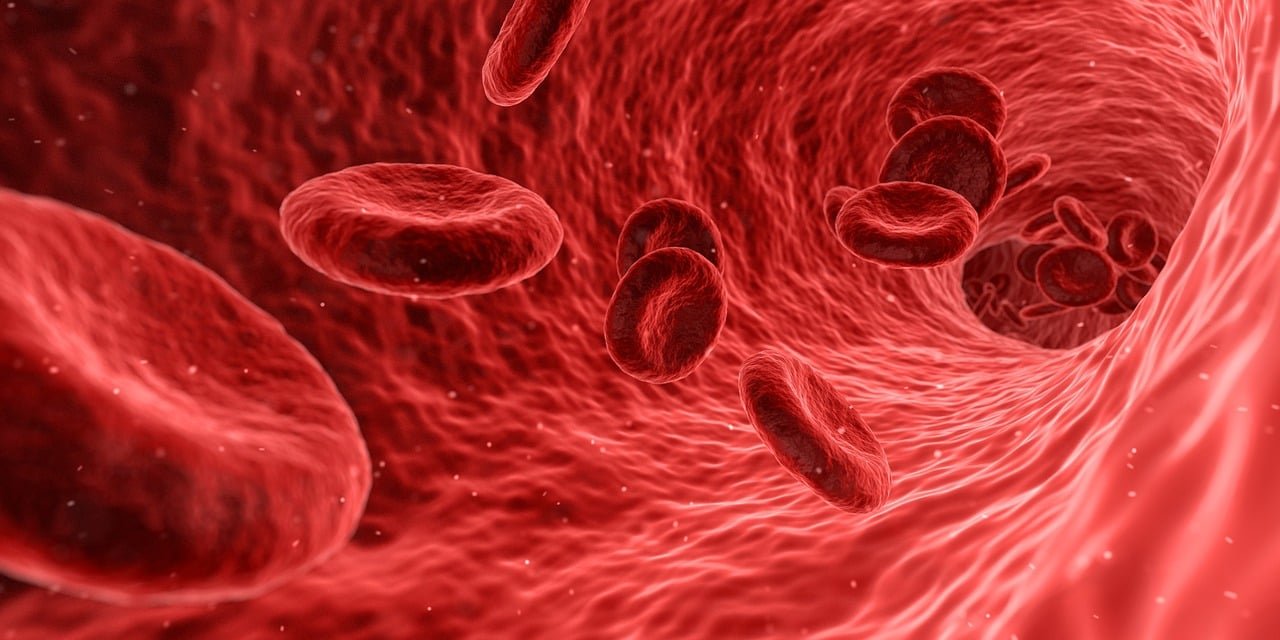Dieticians have praised the Mediterranean diet for its numerous health benefits, including reducing the risk of stroke, heart disease, and certain types of cancer. However, many people wonder if this diet is also effective in lowering high cholesterol levels. High cholesterol is a common health concern that affects millions of people worldwide and can lead to serious health problems if left untreated.
Research suggests that the Mediterranean diet can be an effective way to lower high cholesterol levels. This diet is rich in nutrient-dense foods. It also includes moderate amounts of poultry, fish, and dairy products, as well as limited amounts of sweets and red meat. Researchers believe that these foods help to improve blood vessel function, reduce inflammation, and bad cholesterol levels, all of which can contribute to a healthier heart.
Understanding Cholesterol
Cholesterol is a waxy substance that is produced in the liver and is present in some of the foods we eat. It is essential for the body to function properly, as it plays a crucial role in hormone production, cell building, and food digestion. However, excessive cholesterol in the bloodstream can elevate the risk of heart disease.
There are two types of cholesterol: high-density lipoprotein (HDL) and low-density lipoprotein (LDL). LDL is often referred to as “bad” cholesterol because it can build up in the walls of the arteries, leading to blockages and increasing the risk of heart disease. HDL, on the other hand, is often referred to as “good” cholesterol because it helps to remove LDL from the bloodstream.
Cholesterol levels can be influenced by a variety of factors, including age, gender, genetics, diet, and lifestyle. High cholesterol levels can be managed through a combination of medication, exercise, and dietary changes.
Some foods, such as full-fat dairy products, red meat, as well as processed foods, can increase LDL cholesterol levels. On the other hand, foods that are high in fiber, such as fruits, vegetables, and whole grains, can help to maintain low LDL cholesterol levels and reduce the risk of heart disease.
Overall, understanding cholesterol and its effects on the body is an important step in managing high cholesterol levels. Making dietary changes, such as following a Mediterranean diet, can be an effective way to reduce LDL cholesterol levels and improve heart health.
What is the Mediterranean Diet?
The Mediterranean diet is a way of eating that is based on the traditional foods and cooking styles of the countries that border the Mediterranean Sea. This diet has been widely studied and is known for its many health benefits.
The Mediterranean diet is rich in whole grains, legumes, fruits, vegetables, nuts, and seeds. It also focuses on the consumption of fish and seafood, and moderate amounts of poultry, eggs, and dairy products. Red meat and sweets are consumed in small amounts, if at all.
Olive oil is one of the key components of the Mediterranean diet and is used in place of other fats, such as butter or margarine. Herbs and spices are used to flavor foods instead of salt. Red wine is also consumed in moderation with meals.
Overall, the Mediterranean diet is a balanced and nutritious way of eating that focuses on whole, minimally processed foods. It is not a strict diet plan, but rather a lifestyle that promotes good health and longevity.
Benefits of the Mediterranean Diet
Heart Health
The Mediterranean diet is known to improve heart health by reducing the risk of heart disease. This is due to the diet’s emphasis on healthy fats, which help to lower bad cholesterol levels. Additionally, the diet is high in fiber, which can help to lower blood pressure and reduce the risk of heart disease.
Weight Management
The Mediterranean diet has also been shown to aid in weight management. This is because the diet is low in processed foods and high in whole, nutrient-dense foods. Additionally, the diet is rich in healthy fats, which can help to keep you feeling full and satisfied for longer periods of time.
Improved Digestive Health
The Mediterranean diet is also beneficial for digestive health. The diet is high in fiber, which can help to promote regular bowel movements and improve overall gut health. Additionally, the diet is rich in antioxidants, which can help to reduce inflammation in the gut and improve overall digestive function.
Overall, the Mediterranean diet is a healthy and sustainable way to improve overall health and well-being. By incorporating more whole, nutrient-dense foods into your diet, you can improve heart health, aid in weight management, and promote better digestive health.
The Mediterranean Diet and High Cholesterol
The Mediterranean diet is a popular eating pattern that has been linked to a range of health benefits, but what about high cholesterol? Can the Mediterranean diet help manage this condition? Let’s take a closer look.
Impact on LDL and HDL Levels
Low-density lipoprotein (LDL) cholesterol – the “bad” cholesterol can build up in the arteries and increase the risk of heart disease. High-density lipoprotein (HDL) – the “good” cholesterol helps to remove LDL cholesterol from the bloodstream.
Studies have found that following a Mediterranean diet can help to reduce LDL cholesterol levels while increasing HDL cholesterol levels. This is likely due to the diet’s emphasis on consuming healthy fats, such as those found in nuts, olive oil, and fatty fish. These fats can help improve cholesterol levels and reduce inflammation in the body.
Role of Dietary Fiber
Dietary fiber is a type of carbohydrate that is not digested by the body. Instead, it passes through the digestive system, helping to keep things moving and promoting feelings of fullness. Fiber can also help in lowering LDL cholesterol levels by binding to cholesterol in the digestive tract and removing it from the body.
The Mediterranean diet is rich in fiber, thanks to its emphasis on whole grains, fruits, vegetables, and legumes. This can help improve cholesterol levels and reduce the risk of heart disease.
Effect of Healthy Fats
As mentioned earlier, the Mediterranean diet is rich in healthy fats, such as those found in olive oil, nuts, and fatty fish. These fats can help improve cholesterol levels and reduce inflammation in the body.
In addition to their cholesterol-lowering effects, healthy fats can also help improve overall heart health. They can reduce the risk of heart disease by lowering blood pressure, reducing the risk of blood clots, and improving the health of blood vessels.
Overall, the Mediterranean diet can be a great option for those looking to manage high cholesterol. Its emphasis on whole, plant-based foods, healthy fats, and lean protein can help improve cholesterol levels and reduce the risk of heart disease.
Incorporating the Mediterranean Diet into Your Lifestyle
Meal Planning Tips
Incorporating the Mediterranean diet into your lifestyle can be easy and delicious. Here are some meal-planning tips to help you get started:
- Plan your meals around vegetables, fruits, whole grains, legumes, nuts, and seeds.
- Use olive oil instead of butter or other oils.
- Eat fish and seafood at least twice a week.
- Limit your intake of red meat and sweets.
- Use herbs and spices instead of salt to flavor your food.
- Drink plenty of water and limit your intake of sugary drinks.
Sustainable Eating Habits
The Mediterranean diet is not just about what you eat, but also about how you eat. Here are some sustainable eating habits to help you maintain a healthy lifestyle:
- Eat slowly and enjoy your food.
- Eat with family and friends.
- Use smaller plates and bowls to control your portions.
- Limit your intake of processed foods.
- Cook at home more often.
- Be physically active every day.
By incorporating these meal planning tips and sustainable eating habits into your lifestyle, you can enjoy the benefits of the Mediterranean diet and improve your cholesterol levels.
Conclusion
In conclusion, the Mediterranean diet is a healthy and effective way to reduce high cholesterol levels. The diet emphasizes the consumption of foods that are likely to keep LDL cholesterol levels low. Additionally, the diet discourages the intake of processed foods, red meat, and saturated fats, which are known to increase cholesterol levels.
Studies have consistently shown that the Mediterranean diet can reduce LDL cholesterol levels by up to 10%. This reduction can be achieved within just a few weeks of adopting the diet. Furthermore, the Mediterranean diet has been shown to improve other cardiovascular risk factors, such as blood pressure and inflammation.
It is important to note that the Mediterranean diet is not a quick fix for high cholesterol levels. It is a lifestyle change that requires commitment and consistency. However, the benefits of the diet extend beyond cholesterol reduction and can lead to overall improved health and well-being.
Overall, the Mediterranean diet is a safe and effective option for individuals with high cholesterol levels. It is a balanced and sustainable way to reduce cholesterol levels and improve overall health.





